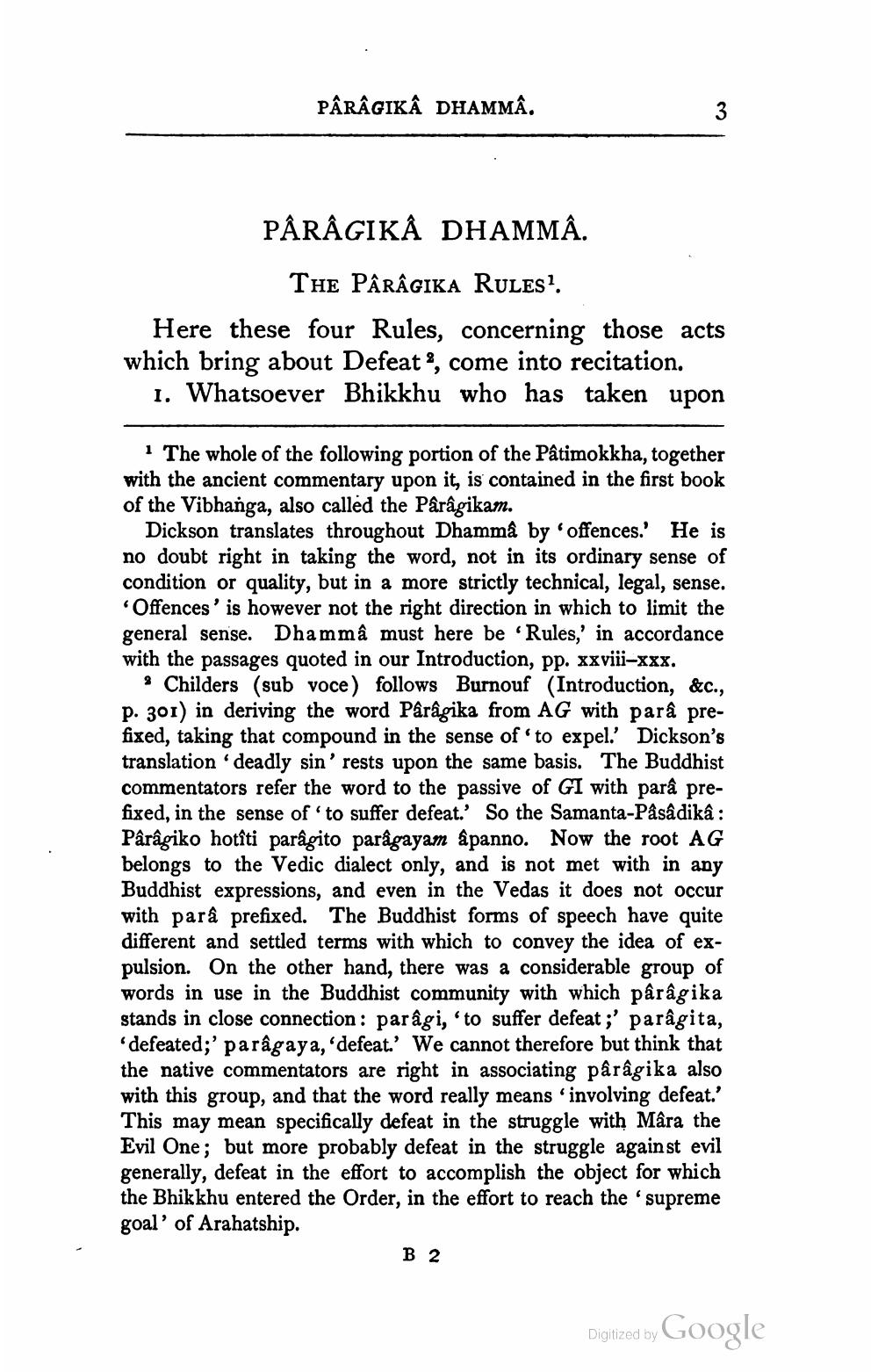________________
PÂRÂGIKÂ DHAMMÂ.
_3
PÂRÂGIKÅ DHAMMA.
THE PÂRÂGIKA RULES?. Here these four Rules, concerning those acts which bring about Defeat?, come into recitation.
1. Whatsoever Bhikkhu who has taken upon
1 The whole of the following portion of the Pâtimokkha, together with the ancient commentary upon it, is contained in the first book of the Vibhanga, also called the Pârâgikam.
Dickson translates throughout Dhamma by 'offences.' He is no doubt right in taking the word, not in its ordinary sense of condition or quality, but in a more strictly technical, legal, sense. Offences' is however not the right direction in which to limit the general sense. Dhammâ must here be Rules,' in accordance with the passages quoted in our Introduction, pp. xxviii-xxx.
Childers (sub voce) follows Burnouf (Introduction, &c., p. 301) in deriving the word Pârâgika from AG with parâ prefixed, taking that compound in the sense of to expel.' Dickson's translation 'deadly sin' rests upon the same basis. The Buddhist commentators refer the word to the passive of GI with parâ prefixed, in the sense of to suffer defeat.' So the Samanta-Påsâdika: Pârâgiko hotîti parâgito parågayam âpanno. Now the root AG belongs to the Vedic dialect only, and is not met with in any Buddhist expressions, and even in the Vedas it does not occur with parâ prefixed. The Buddhist forms of speech have quite different and settled terms with which to convey the idea of expulsion. On the other hand, there was a considerable group of words in use in the Buddhist community with which pârâgika stands in close connection: paragi, 'to suffer defeat; parâgita, *defeated;' parâgaya, 'defeat.' We cannot therefore but think that the native commentators are right in associating pârâgika also with this group, and that the word really means involving defeat.' This may mean specifically defeat in the struggle with Mâra the Evil One; but more probably defeat in the struggle against evil generally, defeat in the effort to accomplish the object for which the Bhikkhu entered the Order, in the effort to reach the supreme goal' of Arahatship.
B 2
Digitized by Google




